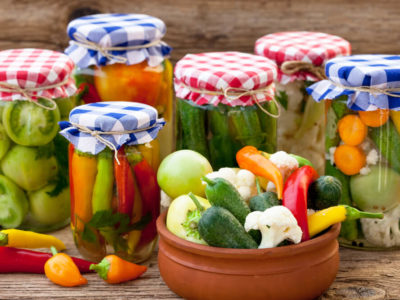Table of Contents[Hide][Show]
- 1. Buying local increases community health.
- 2. Buying local promotes agriculture.
- 3. Buying local promotes more local wealth.
- 4. Buying local reduces the use of fossil fuels.
- 5. Buying local utilizes less plastic.
- 6. Buying local uses land more productively.
- 7. Buying local means less risk for food contamination.
- 8. Eating local (and seasonal) means more nutrient density.
- 9. Buying local creates connections to people and planet.
Better health begins with ourselves, but it eventually involves community.
By standard definition, prosperity brings up the ideas of opulence, ease, and comfort. But what does it really mean to us in modern times, especially as it relates to how we support one another?
Updating our belief system on how we feed our bodies and the impact it makes on the biosphere can unfold into a beautiful journey of self-awareness, social responsibility, and solidarity. What if simply eating local food was a key instrument in stringing together the pieces to a more prosperous life? Let’s grab our (reusable) grocery bags and dive into 10 advantages of buying local and how it can help to change our inner and outer world.
1. Buying local increases community health.
According to the Cambridge Journal of Regions, Economy, and Society, researchers who studied 3,060 counties and parishes in the U.S found that counties with a higher volume of local businesses actually had a lower rate of mortality, obesity, and diabetes. It’s simple: eating foods that are unadulterated with pesticides like organic fruits and vegetables, or free from hormone disrupting compounds like grass-fed meats, pasture-raised eggs and dairy, contribute to a huge upgrade in the Standard American Diet (SAD.)
On another note, supporting your own community’s local businesses can help bring about a sense of unity and connection between you and your neighbors, something that can be very rewarding and encourage a shared team spirit.
2. Buying local promotes agriculture.
Buying local, raw honey is a particularly powerful way to boost your personal health and support the bee population. Besides helping to knockout allergies, buying honey from a nearby beekeeper promotes agriculture. In fact, about one-third of the food we eat relies on bees for pollination.
3. Buying local promotes more local wealth.
Buying locally reaches beyond better health practices and actually has a positive economic impact. Shopping at small businesses promotes the local economy by boosting community wealth and jobs. This Chicago study found that for every $100 spent at a local business, $68 remained in the city compared to only $43 of each $100 at a national chain retailer.
Small businesses—especially brick and mortar businesses—also tend to hire locally, so supporting them means you are helping to stimulate your local community and increase local jobs. At a time when so many small businesses are struggling, if everyone pledged to buy local, the impact could mean helping those businesses get back on their feet.
4. Buying local reduces the use of fossil fuels.
There are environmental benefits to shopping small as well. Buying from local vendors means the product has less travel time from the farm to your table. All of the energy that is used to transport food via planes, trains, trucks, and ships contributes to global warming and unhealthy air quality.
With the release of almost 250,000 tons of global warming gases attributed to the imports of food products, it’s no wonder that purchasing foods from your local farmer’s market could make a world of difference in making a positive environmental impact by limiting the use of fossil fuel emissions and decreasing air pollution.
5. Buying local utilizes less plastic.
The rate of plastic being used at such a constant pace is circulating pandemonium beyond the endocrine disrupters lining our water bottles. In fact, a whopping 91% of plastic isn’t even recycled which explains why 8 million metric tons of it ends up in our oceans every year. Buying local goods actually reinforces the action of BYOB (bringing your own bag) to the farmer’s market.
And have you ever noticed that almost everything in the produce section of your grocery store is packaged or wrapped in plastic? This plastic packaging is used to protect those items from damage during shipping or decomposition because those items are traveling greater distances. Local produce does not need to be packaged this way, sometimes with no use of plastic at all.
6. Buying local uses land more productively.
The average “megastore” consumes disturbing quantities of land for commercial use. In fact, the land used for such superstores is around 15 acres because of the buildings and parking lots. The environmental detriment due to this land usage has led to issues like increased water run-off (contaminated by oils), lowered water tables, and reduction of animal habitats. Most local merchants use land more productively and occupy existing structures. Rather than tearing up land to make profit, shopping local means a vote for the farmers and their land.
7. Buying local means less risk for food contamination.
Sadly, large industrial settings often breed risk to food-borne illness. From E.coli outbreaks in bagged spinach, to salmonella contaminated almond butters, mass produced foods possess a greater threat to becoming tainted. Food from your local farmers market is fresher and usually safer. At the very most, you will want to rinse off the dirt that accumulates on your veggies.
8. Eating local (and seasonal) means more nutrient density.
Buying foods according to their best fit season is a huge tip to achieve ultimate nutrient density. Because of mass farming tactics, foods that are not locally grown (and in season) are available to eat year-round. But does that mean they are just as healthy? Absolutely not. In fact, researchers in Japan found a threefold difference in the vitamin C of spinach harvested in summer as opposed to winter.
9. Buying local creates connections to people and planet.
Staying engaged with your local farms and businesses means a greater sense of community. Having a sense of connection with people creates lasting friendships and also holds such communities accountable for their actions. Getting to visit the farms that grow our foods and physically touch the land goes beyond physical health and nature connects us with the core of humanity.
A great way to support your community and support an independent business is to join a community supported agriculture group or CSA. These are co-ops hosted by small farms that provide local products from local producers.
Joining a CSA means getting guaranteed fresh food, typically seasonal fruits and veggies. It works kind of like a subscription service where customers buy a share which serves as a membership (or subscription) and get a box/bag of fresh produce each week. It’s a mutually beneficial relationship for the supported farm/farmer and the customer who knows that they are getting 100% organic food.
It’s also cheaper to buy fresh produce from a CSA or co-op. Organic produce is often overpriced in big box grocery stores because of transport and the chemicals needed to keep it fresh during transport. So you can save money and your health by shopping at a local farm for your greens.
Check to see where your local CSA is and what food they provide. They’re not just for produce, there are certain CSAs that offer cheese, meat, eggs, and home baked bread too. You can find out more about CSAs and co-ops and search for one near you at Local Harvest.
10. Eating local means plentiful probiotic produce.
When you buy local, not only are you getting food that’s free of pesticides, preservatives, and other chemicals you’re getting food with extra nutrients. Fruits and vegetables that were grown in their native, nutrient dense soils are rich in probiotics. Not only that, locally grown produce that has not been scrubbed off and sanitized still contains soil based organisms which support gut health and immune response. Purchasing a bunch of organically grown carrots at your local farmer’s market is a great way to get your daily intake of “dirt”.
Related
Improve Your Health With Fermented Food
Learn more about the benefits of fermented foods, some do’s and don’ts, and what some of the most popular fermented foods are.
More Ideas for How You Can Make a Positive Impact
- Grow your own food at a communal garden or neighborhood growing program. The benefits are numerous as you get to learn something new and provide for your family as well as meet your neighbors and help others, forming deeper community bonds.
- Go picking! There are many areas where you can pick your own apples, berries, pumpkins, tomatoes, and more. Not only do you know you are getting the freshest food possible, but it can be a fun, family activity.
- Ask around. Even if you don’t grow your own food, you may have a neighbor who does.
Let’s live up to our values.
Now that we have the straight facts as to why buying local can improve our physical and planetary health, let’s take this information and share it with the world. The micro-decisions we make daily affect our short-term and long-term goals alike. So get out to your local farm, farmers market, or produce stand and start enjoying the benefits of buying locally.
You May Also Like…
Editor’s Note: This post was originally published on November 3, 2017, and has been updated for quality and relevancy on September 22, 2021.





